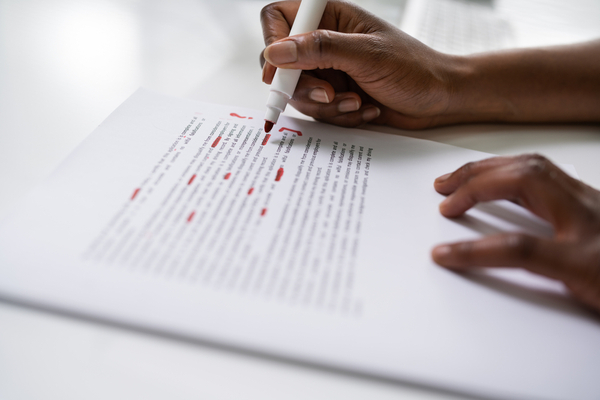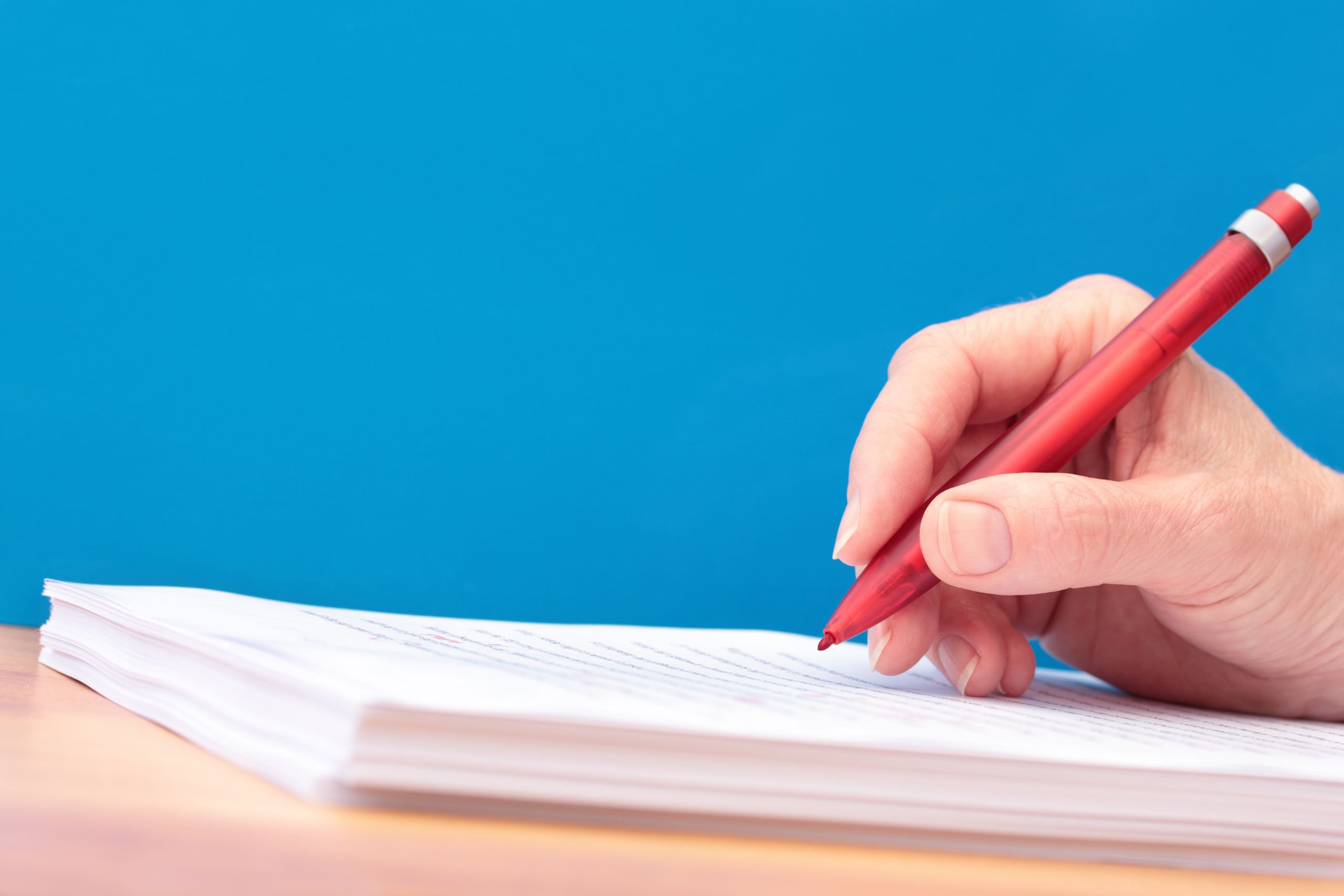A complete guide to finding the right book editor - Oxbridge Editing
Speak right now to our live team of English staff
Introduction
If you’re reading this blog, chances are that you have finished – or nearly finished – writing a book.
Congratulations!
It takes lots of time, effort and commitment to write a book. It’s a labour of love. As the product of such efforts, your book naturally has great value to you, and you want it to be as good as possible. But maybe you’ve reached a point where getting feedback from friends and family is not enough. You might be looking for something more than a beta reader. Or maybe things with your labour of love haven’t gone to plan. It could be that there is precious little love left and what’s left seems mostly like labour. That happens, too, very often.
Either way, you are considering getting help from a book editor. This can be a daunting prospect if you’re doing so for the first time.
But don’t feel overwhelmed. This blog will help you prepare to find book editing services that are right for you – and right for your book, as well.
Editors offer different levels and types of service. We’ll consider them in detail shortly. But if you can relate to any of these scenarios, an editor can help:
- You’ve hit a wall developing your ideas;
- You aren’t satisfied with the way you have expressed your ideas;
- You have worked on the book for so long that you can’t distinguish between what you want it to say and what it actually says;
- You need input from someone experienced in preparing your book for a publisher; or, just generally,
- You want your book to be better.
This blog aims to take you through the key stages that will help you find a book editor in the UK.
The first stage is to think about what makes for a good editor. We are starting from there because it’s always a good idea to know what you’re looking for! Then we’ll take a look at what a good editor can do for you. After that, we will come on to thinking about what you will need to know in advance when you approach a professional book editor. Once you know what to have in hand, the next topic is what to look for from book editing services. After that, this blog will flag up some things not to do after you’ve engaged editing services. It is just as important to know what to avoid as it is to know what to do. This will be the final topic covered in this guide, after which the major points will be summed up in the conclusion.
Traits of a good editor
To find the right book editor, it is best to start by asking the question: what makes a good editor?
Editing is a special task. Experience is important. So, too, are the right skills. And just as important is having the right mindset toward the responsibilities of editing. Let’s start by making a general claim, which we’ll then go through in more detail:
“The work done by an editor is a conversation between the author and an understanding, knowledgeable reader.”
Those traits are key to the successful editing of your book. To see how, let’s think about each of those traits in turn.
Well-Read
For a start, a good editor needs to be a good reader. It seems so basic that you could easily overlook it. Of course your editor needs to know how to read! But there is more to being a good reader than being literate, a pro at picking up typos or having an eye for spotting grammar nuances. Your editor’s skills are all based on habits of reading. As a good reader, your editor knows what to look for in a good book. Your editor has a sense of what style is appropriate to a book like yours, and your editor knows what works and how to match the form of the book to its content.
Knowledgeable
As for knowledge, it helps for your editor to be familiar with the subject of your book. But expertise is not essential for a good editor (a point that we will return to).
The knowledge we’re referring to here is more about understanding how to make your book better. There is more to this than flagging up spelling errors and querying word choices. A good editor will certainly be able to do that. But you also want an editor who is alert to the flow of the text and to the quality of its structure. This knowledge comes from lots of reading. By knowing what makes for a book good, the editor is able to make suggestions for improving your book.
Understanding
This leads on to the third major attribute of a good editor: the editor’s understanding.
What we mean is that the editor understands the process of writing. There’s no value in being able to tell a poor book from a great book if you can’t then put that knowledge into practice. A good editor understands how to take a clunky sentence and work it into something better.
A good editor also understands the role to be played is based on a shared commitment to preparing your book for publication. Understanding also means that the editor knows the difference between editing a book and co-authoring it.
The literary editor Michael Pietsch is quoted as saying that the editor ‘works in invisible ink.’ When the process is completed successfully, every trace of the editor’s involvement will have disappeared.
“The editor doesn’t have a voice. Instead, the editor helps you find yours.”
The basic principle here is that your editor should defer to you as the author. The book is yours. Understanding this is key to the editor’s ability to communicate with you effectively – especially when making recommendations that you might not want to hear. The editor will be aware of the effort and time you have dedicated to your script and will respect that the book has great importance to you. You want an editor who can be tactful while calling your attention to areas where your book can be improved. This is core to professional communication: you want an editor who will be tough with you when necessary, but fair with you always.
A metaphor that we find helpful comes from the ancient philosopher Socrates. Socrates called himself a midwife because he helped people give birth to their ideas. It is similar for an editor, who does not create the book, but aids and supports the author in giving birth to it.
What an editor can do for you
Now that we’ve covered the general traits to look for in an editor, we want to think about the ways your editor can put them into practice to improve your book.
To do this, let’s take a look at what types of editing is available. There are four general levels of editing:
- Content editing;
- Stylistic editing;
- Copy-editing; and
- Proofreading.
Content editing
Content editing is sometimes called developmental editing. This is a ‘big picture’ edit, which typically involves developing the content of the book. Obviously, this requires intense collaboration between the writer and editor, and so it can take a lot of time and should be factored in to your timeline. This level of editing is best if you have an idea that you are struggling to express to your satisfaction.
For content editing, the subject knowledge of your editor is important. If your book is about human rights and migration, an editor whose specialty is mathematics can probably comment on features of the argument but won’t necessarily be able to help you develop your book’s content.
Stylistic editing
Specialist knowledge is less important when you need stylistic editing. A stylistic edit entails reading your book line-by-line. The stylistic editor works on the ‘flow’ of your book. The result of a stylistic edit is a book that is significantly more polished and readable than it was. A certain degree of developing the book will happen inevitably in that process. But to really benefit from a stylistic edit, your book will already be substantially complete. A book editor working at this level focuses on how your book communicates its contents.
Copy-editing
Copy-editing is a rather more technical exercise. At this level, your editor focuses on correcting grammatical or spelling mistakes (such as those pesky apostrophe placements), weeding out repetition, making sure that the syntax is correct. For some books, factual accuracy is a major part of copy-editing. This is a particularly important service when you’ve read and reread and re-reread your book. Eventually, you will start to skim across the text. After all, you know what it says. And that is how mistakes pass by unnoticed until a copy-editor corrects them: rogue words that are left behind after you’ve revised a sentence; a missing ‘not’ that reverses the entire point; writing “they’re” when you mean “their”. This goes beyond what software packages routinely identify.
Another aspect of copy-editing is checking that your book is correctly formatted. There will be more to say about formatting later. For now, the important thing is that a copy-editor will also make sure that your book follows the required style – that the text is justified, that the margins are correct, that the spacing is as it should be. The major contribution that a copy-editor brings to your book is painstaking attention.
Proofreading
Proofreading was originally used to refer to the process of checking the proofs of a work right before it went off to be printed. It was the last stage of quality control before the actual book was made. There is a standard set of symbols used to identify mistakes for correction. This sense of ‘proofreading’ is still very much in use, as you will find when your book goes to the publisher. But for our purposes, when we talk about proofreading what we mean is the process of identifying and correcting errors.
Proofreading and copy-editing – what’s the difference?
Obviously, there is some overlap between the work of a copy-editor and the work of a proofreader. To illustrate the difference, let’s suppose that the editor encounters this sentence:
At some time during the night, probably when was asleep, they quietly collected their belongs and left.
Both the proofreader and the copy-editor would identify the word ‘belongs’ as a problem and would mark up the text as ‘belongings.’ They would also notice that there is a subject missing: when who was asleep? The proofreader would query the author for an answer. The copy-editor has greater scope for making changes and might very well provide a name from context.
Proofread:
At some time during the night, probably when [who?] was asleep, they quietly collected their belongings and left.
Copy-edited:
At some time during the night, probably while Heloise was sleeping, they quietly collected their belongings and left.
That is the basic difference: a proofreader asks questions when the correction isn’t totally obvious; the copy-editor makes corrections and flags them up for the author’s attention. To remember the difference, keep in mind that the classic tool of the proofreader is the red pen.
Knowing the different levels of editing available is important. It helps you focus on what it is that you need from an editor.
It may be the case that the editing you require is highly specific. Editors offer bespoke services for these situations.
Maybe the conclusion doesn’t bring the argument together as you want it to. If so, you will want your editor to focus on the structure and logic of your book in order to strengthen your conclusion. That task may require content editing.
Maybe you aren’t satisfied that a crucial chapter is as clear as it should be. In that case, you might ask for the editor to assist you stylistically.
It could be that your book is specialist and you want an editor who can bring expertise to it, who can refer you to relevant scholarship.
Knowing what to ask for is the key to getting what you need.
Things to consider in advance
There is a number of points worth bearing in mind before you hire an editor. Knowing what services are available to you will help you focus on what it is that you want for your book. But let’s return to an earlier point about the editor:
The editor is not your co-author.
This point was originally made when describing what makes for a good editor. But it is also relevant as you decide what level of service you need. The more precise you can be about what you expect, the better the instructions to the editor will be. And that means that the edited book will be better, too.
The same thing goes for other aspects of preparing your book. There are things that you will want to state clearly. For example, you need to make your editor aware of any deadlines. Your editor won’t automatically know about those.
You will also have to specify what style you want the edited text to conform to. There are lots of standard styles to choose from, such as Chicago, Harvard, MLA and OSCOLA. Some are highly specific, like OSCOLA – which is a style for citations used in law. Those standards are easily available, but you should make your preference known. Alternatively, it may be the case that you are working toward a house style. The press may have its own requirements.
One well-established series of translated medieval texts has decided, for reasons that are entirely opaque, that many proper adjectives are not to be capitalised. For example, in that series:
‘Oswald, the Christian king of Northumbria…’
would become
‘Oswald, the christian king of Northumbria…’
Strange, but true. This is a peculiarity that no editor could be reasonably expected to anticipate. Once more, you will want to let your editor know in advance.
On a similar note, although this article is about UK book editing, it is not unheard of for a UK publisher to insist on American English rather than British English. The most obvious examples of differences are spelling:
colour or color
-ise or -ize
There are also differences in vocabulary: in America, you take the elevator to the car park and put your purchases in the trunk; in the UK, you take the lift to the car park and put them in the boot.
Why would a UK publisher expect your book to use Americanisms? One reason is that they may have identified America as the market for your book. It may not be likely, but we can assure you from experience that it does happen sometimes.
Other factors that you will benefit from identifying to your editor in advance are how technical your book is. That matters especially when you approach an editorial service (about which there will be more to say shortly) so that the service provider can identify the most suitable editor for your book.
Do you want your book to have a specific tone? Tell your editor. Does the content need to be fact-checked? Tell your editor. Do you need your writing to sound more persuasive? Tell your editor. Do you need the text to be in a specific format? Tell your editor. Does the publisher have a policy about inclusive language? You know what comes next: tell your editor.
The editor will work to task. What this means is that, for the best outcome, be clear and upfront when you set the terms for the editing. By doing that, you will save yourself and your editor the particularly horrible frustration – and waste of time – that happens when a basic requirement was not stated plainly before the work began.
We previously mentioned the frustration that comes when an editor tries to become a co-author. Now we should say that there is a corresponding frustration. This happens when an author hands over a text to the editor and says simply, and vaguely, ‘Please fix this.’ The clearer your instructions, the likelier the editing will produce good results for you.
Where to find a good editor
By this point, you may very well think that a good editor is like a unicorn: impossible to find, if not just plain mythical.
Not so! Here are some strategies for finding an editor.
Ask around
You can get an indication of where to find a good editor from recommendations. Ask colleagues and friends who have already published if they can suggest someone. Word of mouth is important. So, too, are testimonials that you will find when you search for professional book editing online. Sometimes you will find the name of an editor in the acknowledgements of books that you admire, though not always.
Find a book editing company
There are lots of self-employed editors out there. So many, in fact, that you should seriously consider a way to make the process easier for yourself: find a company that offers book editing services.
A company will have a range of editors and will be able to match your requirements to the skills of a specific editor. They will have subject specialists. They will offer standard editing rates for projects that are competitive and that are clear from the start. They will also assist you in getting the necessary information to your editor from the get-go.
Another major benefit of working with an editing company is that they will have clear policies. That is good for you because you will know what to expect. But it is also good for you because the company will monitor the work done by the editor. The company will have taken pains to build up a good relationship with trusted editors. It is also very much in the company’s interest to retain only editors who produce quality work. And, in the event that problems arise during the editorial process, the company will be able to intervene and resolve those problems. Arranging to have your book edited through a service is a great way to simplify the process for yourself.
What not to do
Up to this point in the article, we have dwelt on the positives. But there are also some warnings that you should take into consideration when finding the right editor for you.
- Don’t delay! If you are working to a deadline, be aware that a tighter deadline makes for a higher cost.
- Don’t confuse an editor for a ghost-writer. Even a content edit only goes so far.
- Don’t expect your editor to read your mind. The relationship of an author and an editor depends on good communication and that has to flow in both directions.
- Don’t balk at paying for a service that is demanding and requires great skill. The cost of editing is an investment in your book.
- Don’t be offended when the editor suggests changes.
On this last point, the prolific and fantastically successful horror novelist Stephen King wrote: ‘Kill your darlings, kill your darlings, even when it breaks your egocentric little scribbler’s heart, kill your darlings.’ That is well-worn advice. It means sometimes you have to cut something precious from your work for the sake of improving it. King also observed that it’s easier to kill someone else’s darlings than your own. You won’t like it when the editor suggests a drastic change, but sometimes that is necessary. Especially if your book is getting a stylistic or content edit, making those changes is part of what you are paying for.
To sum up
Editing is not a single activity. It encompasses a range of services. We have suggested thinking of them as levels which correspond to how heavily the editor is involved in improving your book.
At its most sweeping, the editor assists you in developing the content of your book. At its most restrictive, the editor silently corrects obvious mistakes and flags up obscure passages for your attention. What all these levels of book editing have in common is they are all means for you to be assisted in making your book better.
This point bears repeating. The editor’s activity is about improving your book. The editor, we suggested, is like a midwife. Once the book has been edited, the editor returns it to you. Your name, not the editor’s, will be on the cover. Earlier, we suggested that the process of editing is conversational. In the spirit of a conversation, the editor will make constructive recommendations and will defer to your role as the author.
Much as an editor is not your co-author, nor is an editor your teacher. Hopefully, you may learn from the process of working with an editor, whose suggestions might spur you to consider new aspects of your topic, but even so, your editor is not there to mark your text and pass or fail it.
If the process goes successfully, the result will be a book that more closely resembles your ideal. There may be difficult conversations along the way. You should be prepared for suggestions that you don’t want to hear. But if you arrange to have your book edited through a company, you can have confidence that the company will train its editors and stand by the quality of the work that their editors do.
It is good to keep an open mind. After all, the difficult work is exactly what you are paying for the editor to do.
Once the editor’s work is done, the only trace left by the editor will be the improvements to your book.













